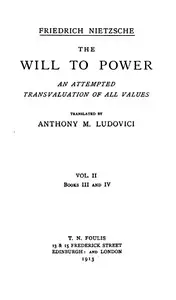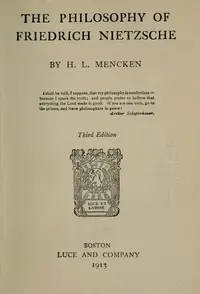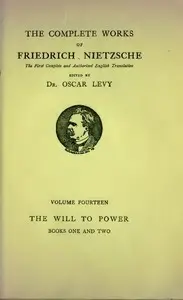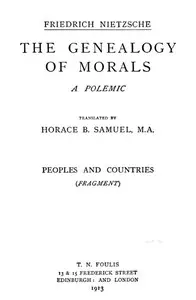"The Will to Power: An Attempted Transvaluation of All Values, Book III and IV" by Friedrich Nietzsche is a philosophical work from the late 1800s that presents the author's thoughts on the "Will to Power". Nietzsche calls for a big change in how we think about what's important in areas like science, art, and what's right and wrong. The beginning of this book introduces the main ideas that Nietzsche will talk about later. He criticizes the usual ways of doing science, saying that science is just as much about personal opinions as art is, because both are shaped by our basic need to survive and be powerful. Nietzsche breaks down important ideas like cause and effect, the "self," and the idea of truth that is the same for everyone, arguing that these are just ideas made up by people. He believes that knowing things helps us to get power, highlighting that how we understand the world is greatly affected by our natural instincts and biological needs and is the origin of a new way of thinking about the world.

The Will to Power: An Attempted Transvaluation of All Values. Book III and IV
By Friedrich Wilhelm Nietzsche
Challenge your perceptions as a philosopher dissects science, art, and morality, arguing that human will shapes all knowledge and values.
Summary
About the AuthorFriedrich Wilhelm Nietzsche was a German classical scholar, philosopher, and critic of culture, who became one of the most influential of all modern thinkers. He began his career as a classical philologist before turning to philosophy. He became the youngest person to hold the Chair of Classical Philology at the University of Basel in Switzerland in 1869, at the age of 24, but resigned in 1879 due to health problems that plagued him most of his life; he completed much of his core writing in the following decade. In 1889, at age 44, he suffered a collapse and afterward a complete loss of his mental faculties, with paralysis and probably vascular dementia. He lived his remaining years in the care of his mother until her death in 1897, and then with his sister Elisabeth Förster-Nietzsche. Nietzsche died in 1900, after experiencing pneumonia and multiple strokes.
Friedrich Wilhelm Nietzsche was a German classical scholar, philosopher, and critic of culture, who became one of the most influential of all modern thinkers. He began his career as a classical philologist before turning to philosophy. He became the youngest person to hold the Chair of Classical Philology at the University of Basel in Switzerland in 1869, at the age of 24, but resigned in 1879 due to health problems that plagued him most of his life; he completed much of his core writing in the following decade. In 1889, at age 44, he suffered a collapse and afterward a complete loss of his mental faculties, with paralysis and probably vascular dementia. He lived his remaining years in the care of his mother until her death in 1897, and then with his sister Elisabeth Förster-Nietzsche. Nietzsche died in 1900, after experiencing pneumonia and multiple strokes.



















